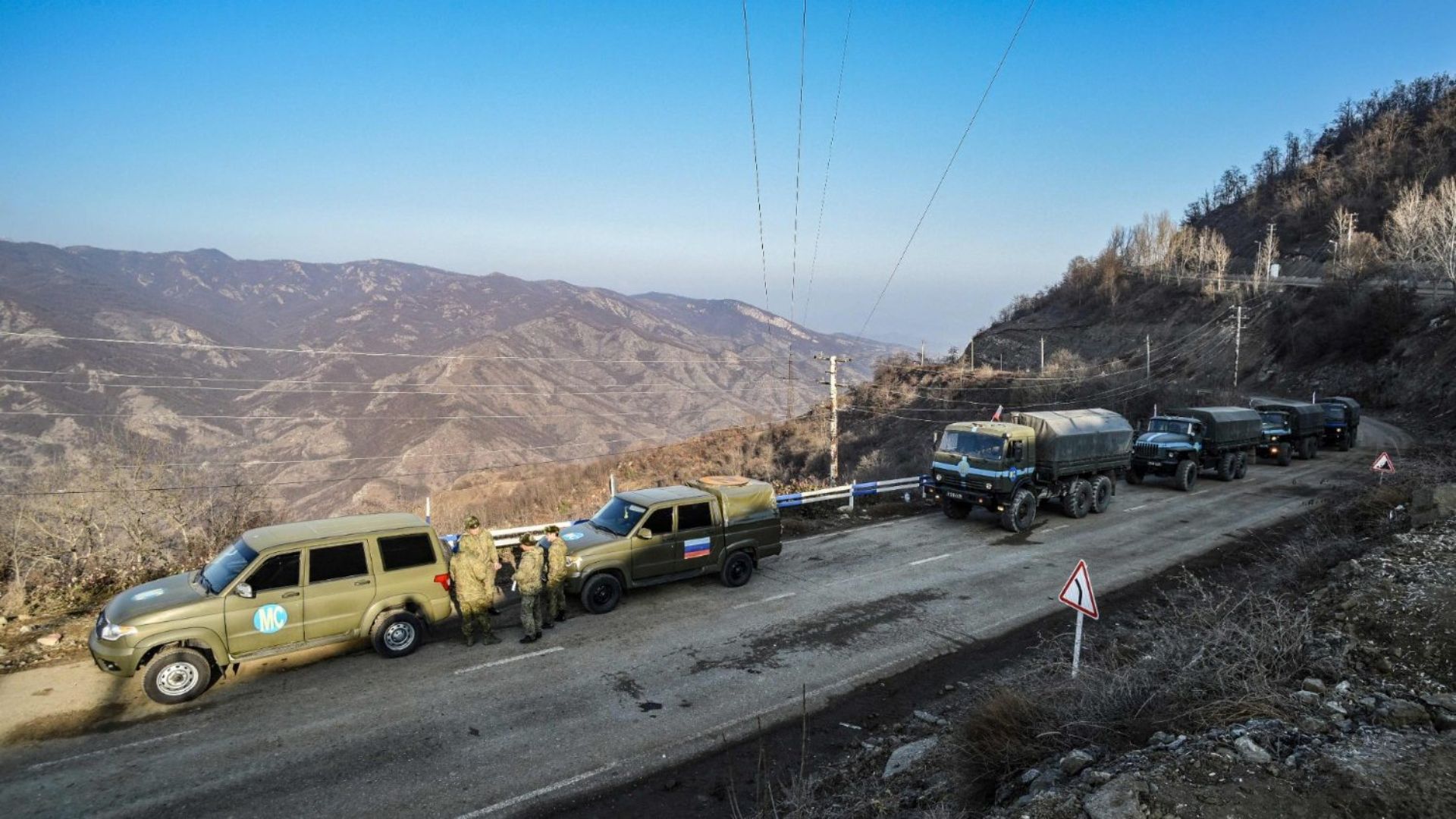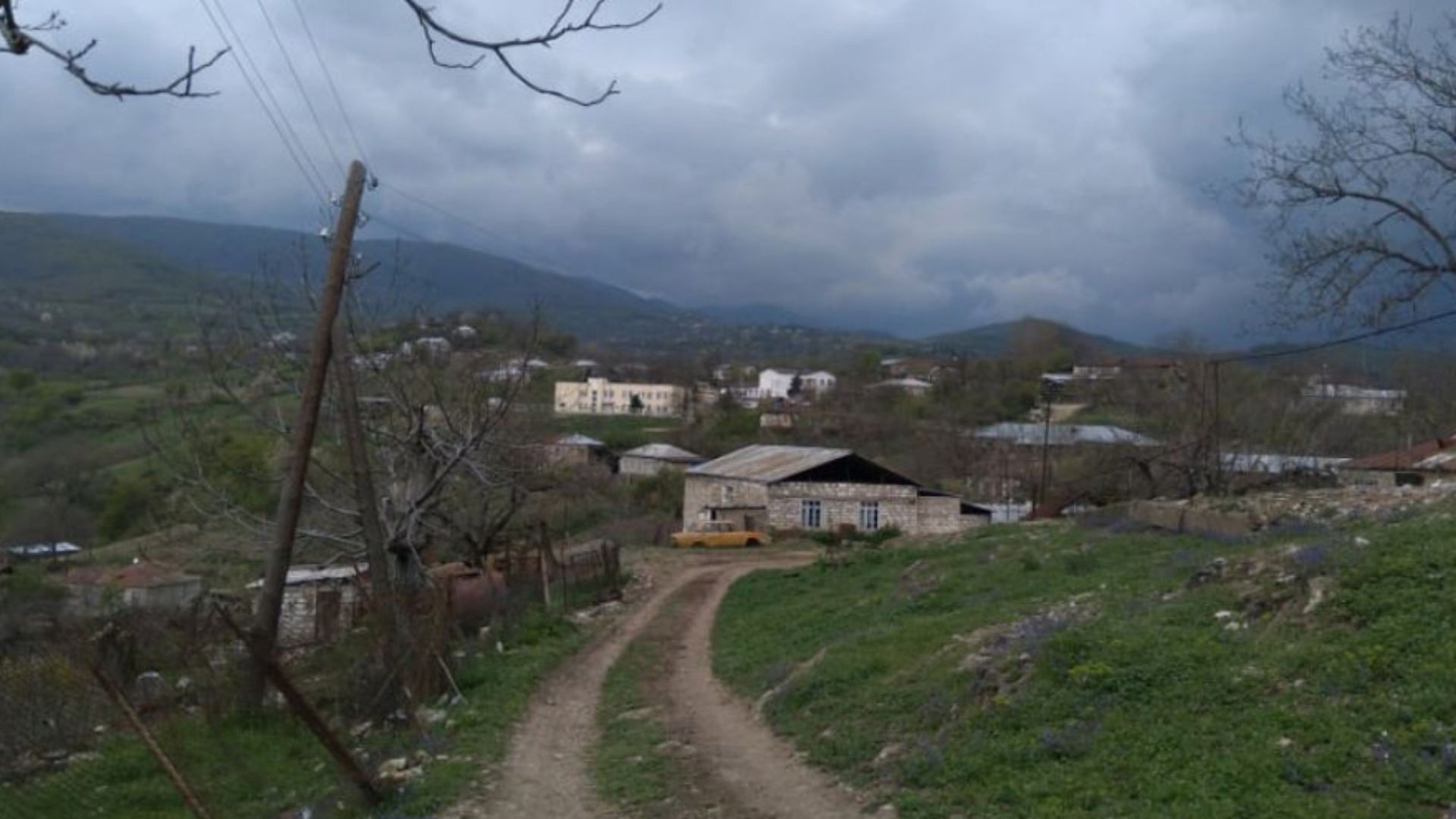Armenia - The Lachin Corridor, Nagorno-Karabakh’s land link with Armenia, has been blocked by Azerbaijan for the past month stopping vital supplies from reaching the 120,000 Armenians in the mountainous enclave reoprted Vatican News.
In September 2020, Azerbaijan launched a massive military action against the small, de facto Armenian republic of Nagorno Karabakh (Artsakh Republic), unleashing 44 days of brutal clashes in which close to 7,000 people were killed on both sides.
A Russian-brokered ceasefire agreement was signed in November, suspending the intense fighting in the decades-old Armenian-Azerbaijani conflict over the territory of Nagorno-Karabakh and surrounding districts.

The November 2020 ceasefire ushered in the deployment of some 2,000 Russian peacekeepers and provided for the creation of a corridor (the so-called 'Lachin Corridor') to act as a humanitarian passage between the territory that remained under Armenian control and Armenia.
But the Stepanakert-Goris road, which should be open for humanitarian cargo, emergency services and peacekeepers has been under siege and blocked since the beginning of December last year, by a group of alleged Azerbaijani 'environmental protesters’ demanding to inspect what they say are illegal ore mines in Karabakh.
That first blockade was lifted after about three hours, but one week later, the road to Armenia was sealed again.
This time, by dozens of so-called environmental activists, whom witnesses have said, are infiltrated by plainclothes soldiers, former military personnel and officials of government organisations.
These protesters have allegedly also been joined by soldiers from Azerbaijan in violation of the ceasefire agreement that foresees only the presence of the Russian peacekeeping force to control the road.
Meanwhile, the gas supply was also interrupted for days, as the Armenian pipeline passes through territories under Azerbaijani control. It has since been re-established by a European Court of Human Rights (ECHR) emergency order.

Dire humanitarian consequences
- As of 12 December 2022, Artsakh is no longer supplied with the approximately 400 tonnes of goods arriving daily from Armenia.
- No one can travel to and from Armenia anymore.
- All planned surgical operations are suspended.
- Pharmacies are running out of stocks of all medicines.
- Fuel is running out, and very few vehicles are on the road.
- Food is running out and shops are empty; the government is drawing on rapidly dwindling emergency food supplies like pasta and canned goods.
- Ration cards have been distributed.
- Kindergartens are closed because it is not possible to provide food for children
- Since 10 January, the high-voltage electricity grid from Armenia has been interrupted due to a fault (or act of sabotage) in Azerbaijani-controlled territory, preventing the Armenian electricity company from repairing the fault.
- Since 12 January, the cable for the internet connection has been sabotaged at the Azerbaijani blockade along the Lachin corridor.
Thus, 120,000 people (including 30,000 children and 20,000 elderly) are in the midst of a humanitarian crisis.
Appeals
There have been numerous 'institutional' appeals for the restoration of the viability and free movement of people on the Lachin corridor.
Pope Francis expressed concern for the situation in Nagorno-Karabakh and appealed to the parties to find “peaceful solutions for the good of the people” during the Angelus of 18 December 2022.
But the situation is getting worse every day. It is heading towards an unprecedented humanitarian catastrophe.
-VN